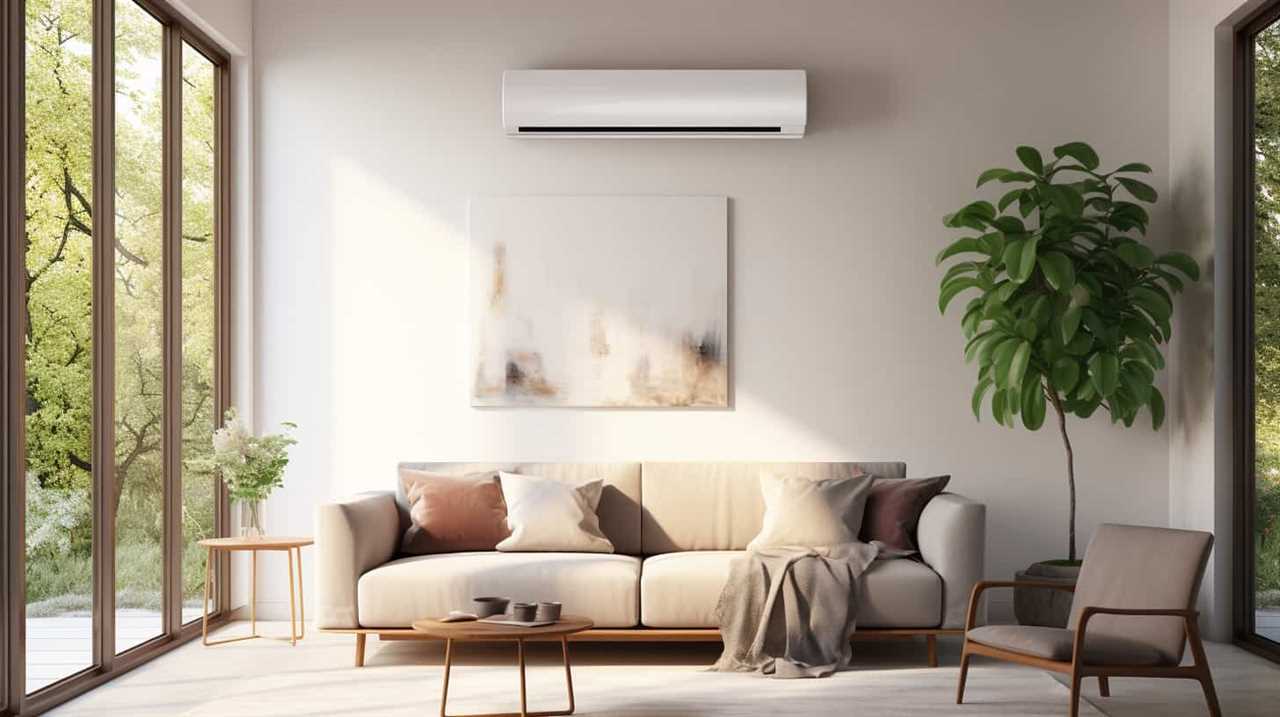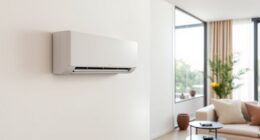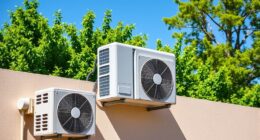We are here to discover the truth behind heat pump electricity usage.
Did you know that heat pumps can be a more energy-efficient alternative to traditional HVAC systems?
In this article, we’ll explore the factors that affect heat pump electricity usage, compare it to conventional systems, and provide tips for reducing consumption.
Get ready to dive into the world of energy efficiency and discover the future of heat pump technology.

Join us on this enlightening journey towards a greener future.
Key Takeaways
- Energy-efficient products benefit the environment and save money on utility bills.
- Proper sizing and regular maintenance are essential for optimal heat pump efficiency and reduced electrical consumption.
- Heat pumps generally consume less energy compared to traditional HVAC systems due to their ability to transfer heat from the outside air or ground.
- Installing a smart thermostat, proper insulation techniques, sealing air leaks, and programming the thermostat can help reduce heat pump electricity consumption.
Understanding Energy Efficiency Ratings
In this article, we’ll delve into the topic of understanding energy efficiency ratings. Energy efficiency benefits both the environment and our wallets. By using energy-efficient appliances and systems, we can reduce our carbon footprint and save money on utility bills.
However, there are some misconceptions about energy efficiency that need to be addressed. One common misconception is that energy-efficient products are expensive and not worth the investment. In reality, while energy-efficient products may have a higher upfront cost, they can lead to significant long-term savings.
Another misconception is that energy-efficient products are less effective than their traditional counterparts. This is simply not true. Energy-efficient products undergo rigorous testing to ensure that they meet or exceed the standards set by regulatory bodies.
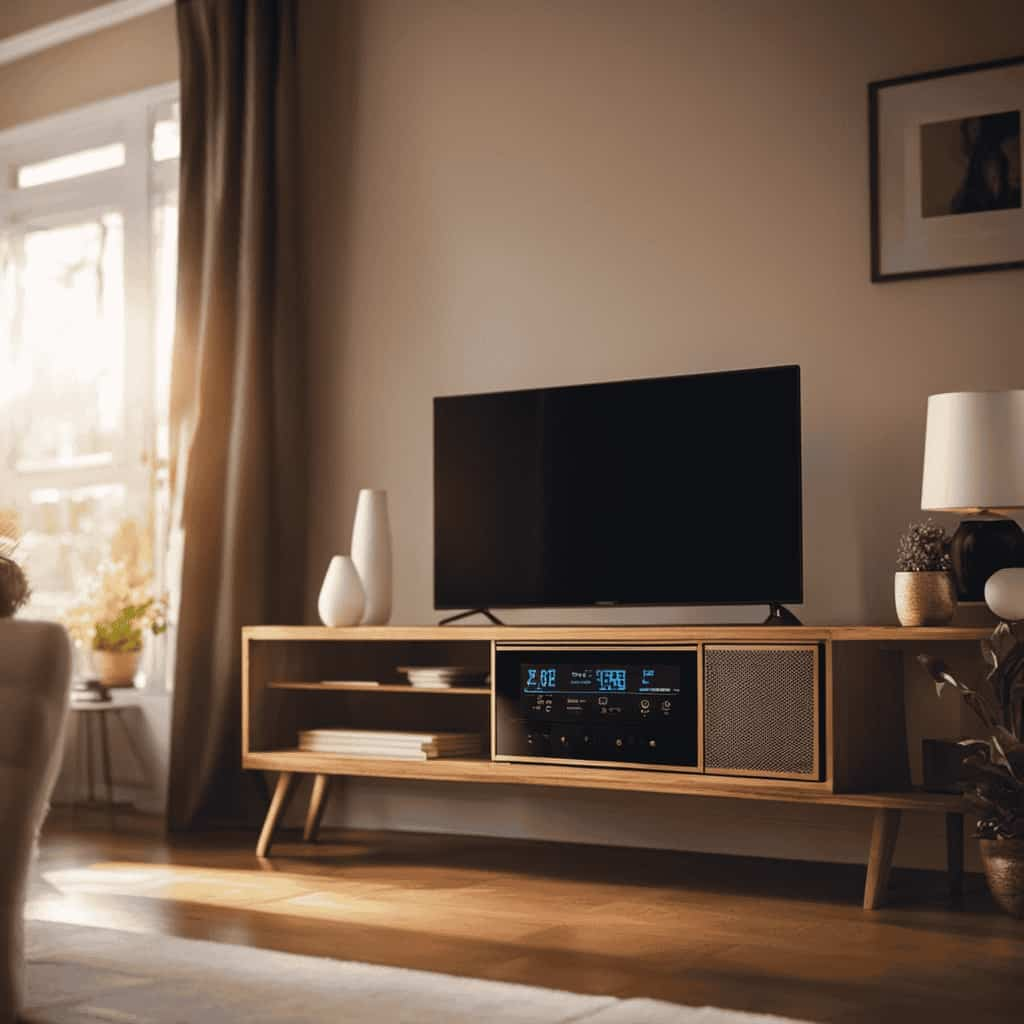
Factors Affecting Heat Pump Electrical Consumption
One of the factors that affects heat pump electrical consumption is the size of the heat pump unit. A larger heat pump unit typically requires more electricity to operate, as it needs to generate and distribute more heat or cool air. However, it’s important to note that a properly sized heat pump is essential for optimal energy efficiency.
Oversized units may cycle on and off frequently, leading to increased energy consumption and reduced comfort. On the other hand, undersized units may struggle to meet the heating or cooling demands, leading to longer running times and increased electrical consumption.
In addition to size, other factors that can affect heat pump electrical consumption include proper heat pump maintenance and seasonal variations. Regular maintenance, such as cleaning or replacing filters, checking refrigerant levels, and ensuring proper airflow, can help improve the efficiency of the heat pump and reduce electrical consumption.
Furthermore, seasonal variations can impact heat pump electrical consumption, as the unit may need to work harder in extreme temperatures to maintain desired indoor temperatures.
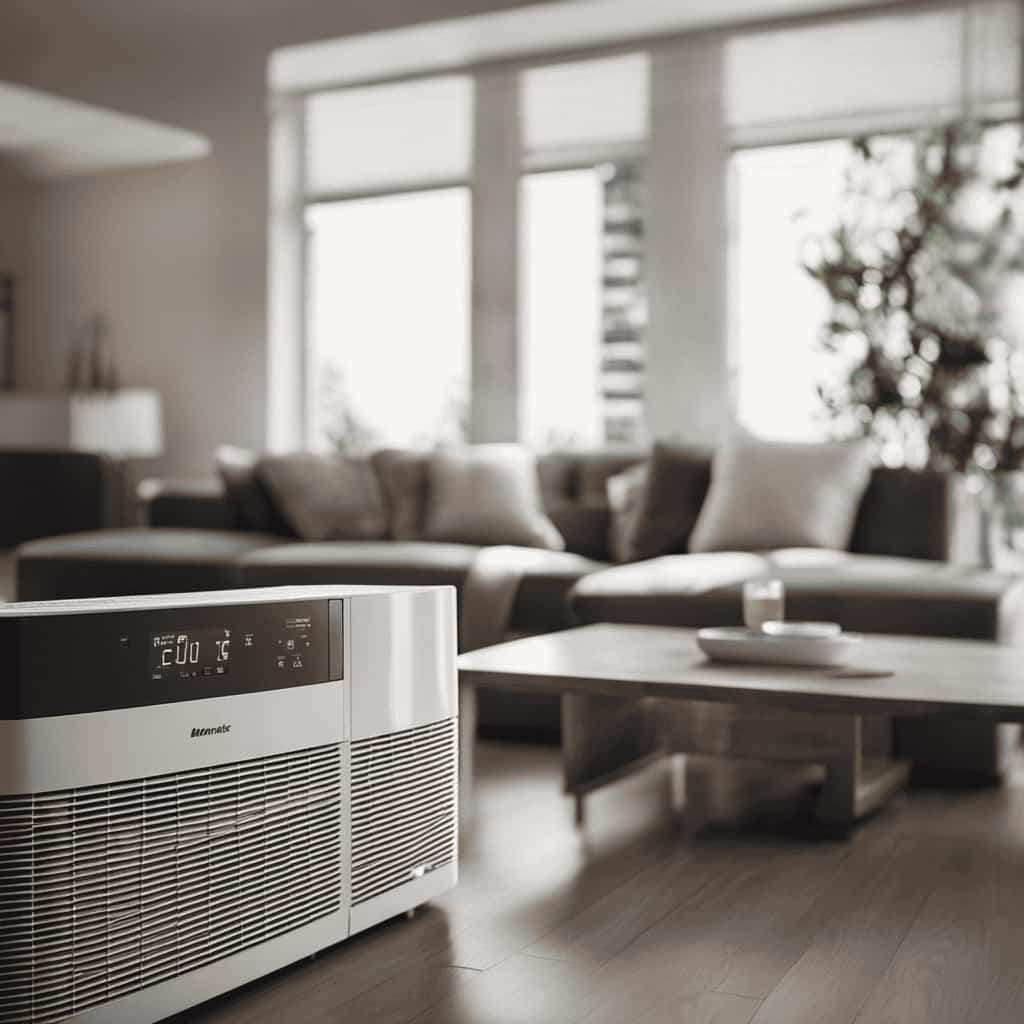
Comparing Energy Usage: Heat Pump Vs. Traditional HVAC Systems
Our research shows that heat pumps generally consume less energy compared to traditional HVAC systems. This means that using a heat pump can result in significant energy savings and cost reduction.
Here are four key factors that contribute to the energy efficiency of heat pumps:
-
Heat transfer: Heat pumps transfer heat from the outside air or ground to warm your home, using less energy compared to generating heat from scratch.
-
Dual functionality: Heat pumps can both heat and cool your home, eliminating the need for separate systems, further reducing energy consumption.

-
Variable speed motors: Heat pumps often use variable speed motors, which allow them to operate at lower speeds when less heating or cooling is needed, saving energy.
-
Energy source: Heat pumps can utilize renewable energy sources, such as geothermal or solar, which are more sustainable and cost-effective in the long run.
By understanding these factors, you can make an informed cost comparison and choose an energy-efficient heat pump for your home.
In the next section, we’ll provide tips for reducing heat pump electricity consumption.
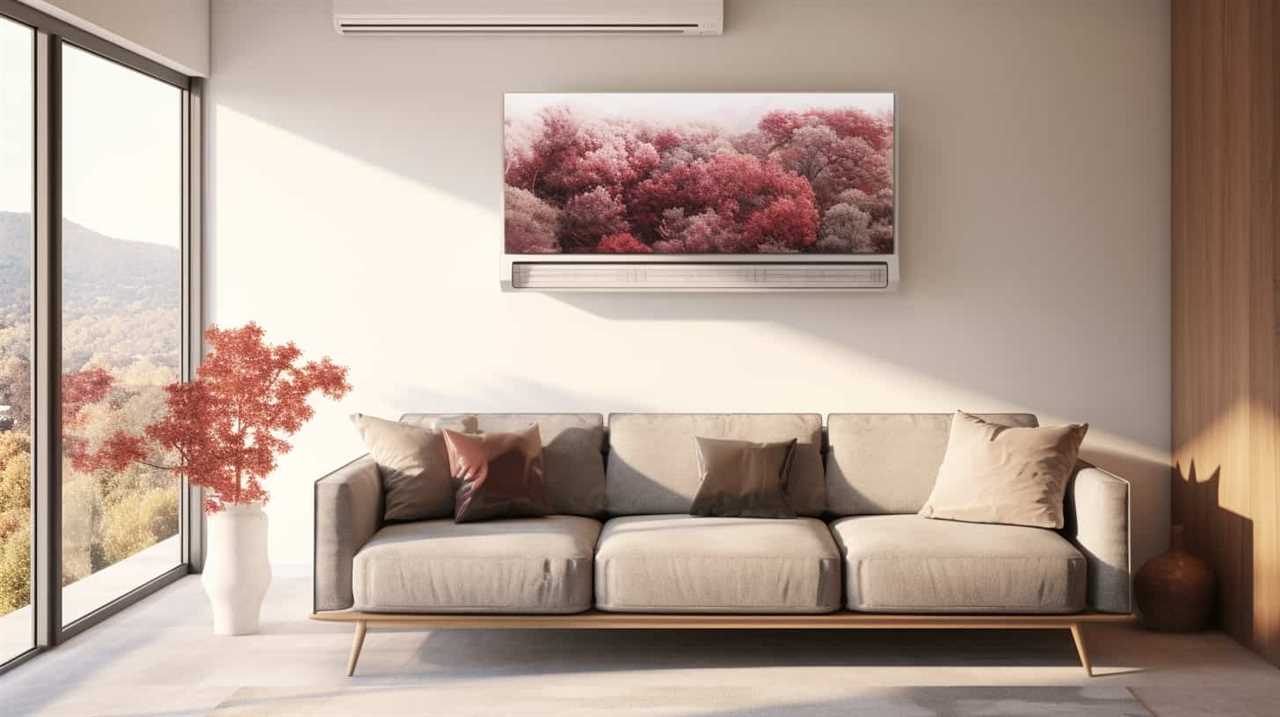
Tips for Reducing Heat Pump Electricity Consumption
To reduce heat pump electricity consumption, we can implement several strategies.
First, installing a smart thermostat allows for precise control over the temperature settings, ensuring that the heat pump operates only when necessary. By programming the thermostat to lower the temperature when no one is home or during sleeping hours, energy can be saved.
Second, proper insulation techniques can significantly reduce heat loss and gain, maximizing the efficiency of the heat pump. Insulating the walls, ceilings, and floors, as well as sealing any air leaks, prevents the heat pump from working harder than necessary. Additionally, insulating the ductwork can minimize heat loss during distribution.
The Future of Energy Efficient Heat Pump Technology
As technology continues to advance, the future of energy efficient heat pump technology looks promising with the development of innovative features and increased sustainability. Here are four key advancements that are shaping the future of heat pump technology:
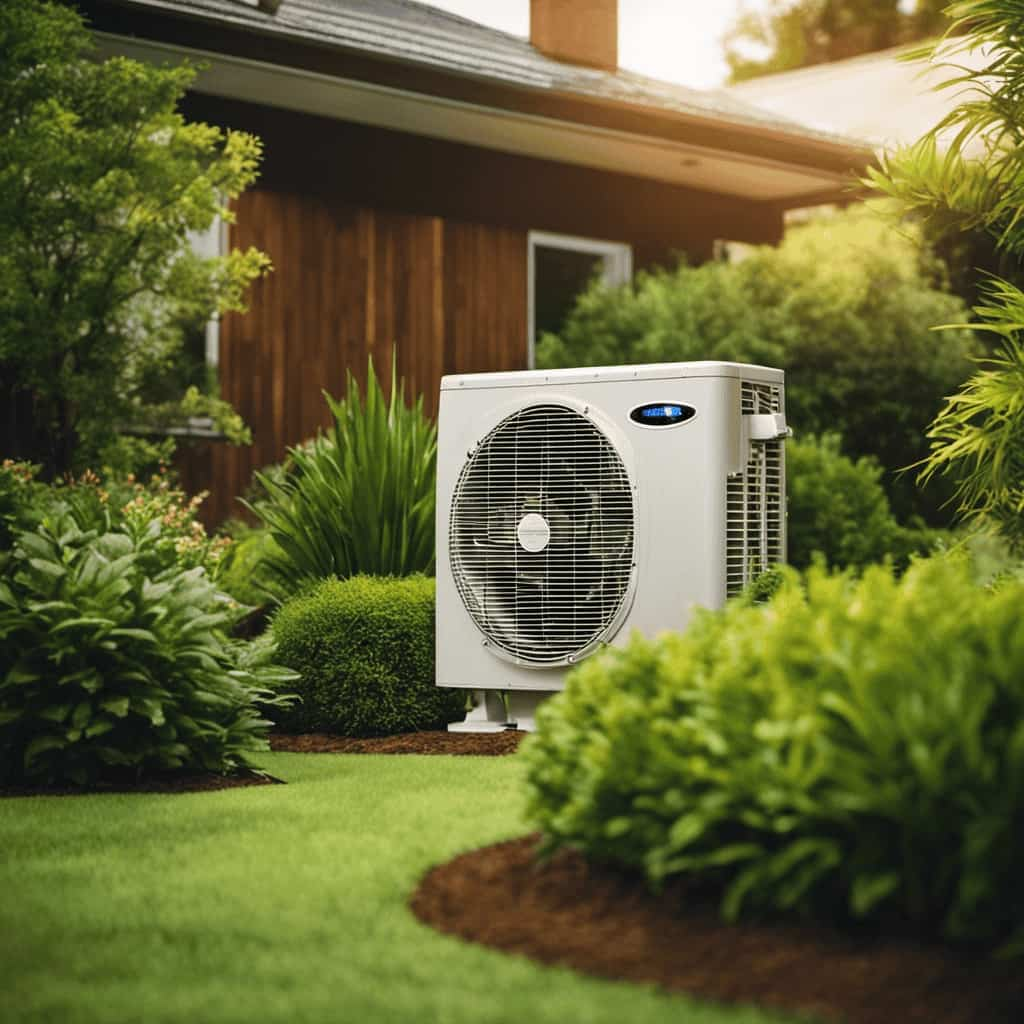
-
Smart Grid Integration: Heat pumps will be seamlessly integrated with smart grid systems, allowing for more efficient and optimized energy consumption. This will enable homeowners to take advantage of off-peak electricity rates and reduce their overall energy costs.
-
Enhanced Efficiency: The future heat pumps will have improved efficiency ratings, ensuring that more energy is converted into heat while consuming less electricity. This will result in significant energy savings and reduced environmental impact.
-
Renewable Energy Sources: Heat pumps will increasingly be designed to harness renewable energy sources such as solar and geothermal energy. This will further reduce the reliance on fossil fuels and contribute to a greener and more sustainable future.
-
Intelligent Controls: Heat pumps will be equipped with advanced control systems that optimize their performance based on factors like weather conditions, occupancy, and user preferences. This will allow for greater comfort and energy savings by adapting to the specific needs of the user.
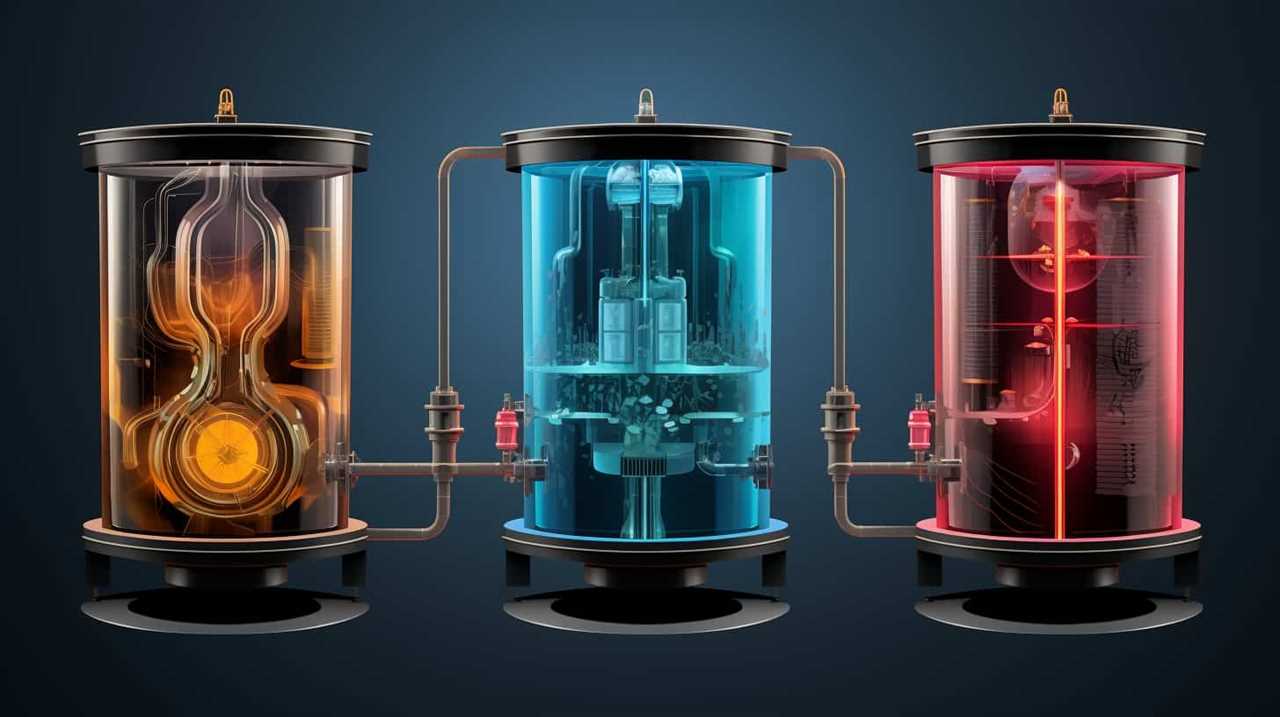
These advancements in heat pump technology hold great potential for revolutionizing the way we heat and cool our homes, offering more energy efficient and environmentally friendly solutions.
Frequently Asked Questions
Can a Heat Pump Be Used in Extremely Cold Climates?
Yes, a heat pump can be used in extremely cold climates. Despite the cold weather, heat pump efficiency and performance can still be maintained by utilizing advanced technology and proper insulation.
How Does the Size of a Heat Pump Affect Its Electrical Consumption?
When it comes to heat pump efficiency, the size of the unit plays a significant role in its electrical consumption. A smaller unit may consume less energy, while a larger one may consume more.
Are There Any Government Incentives or Rebates Available for Installing Energy-Efficient Heat Pumps?
There are government incentives and rebates available for installing energy-efficient heat pumps. These incentives aim to promote the use of energy-efficient technologies and reduce carbon emissions. Installation of such heat pumps can qualify for these benefits.

Can I Use a Heat Pump for Both Heating and Cooling Purposes?
Yes, you can use a heat pump for both heating and cooling purposes. Heat pump efficiency is beneficial because it can transfer heat from the outside air to warm your home in winter and remove heat from your home to cool it in summer.
Does the Location of the Heat Pump Installation Affect Its Electricity Consumption?
Installing a heat pump in different locations can impact its electricity consumption. Factors like insulation can affect the efficiency of the heat pump, resulting in varying electricity usage. Additionally, different models of heat pumps may have different electricity consumption rates.
Conclusion
In conclusion, heat pump electrical consumption is an important factor to consider when aiming for energy efficiency. By understanding energy efficiency ratings and the various factors that affect heat pump consumption, individuals can make informed choices to reduce their electricity usage.
Comparing heat pumps to traditional HVAC systems highlights the potential for energy savings. And with advancements in technology, the future of energy-efficient heat pump technology looks promising.
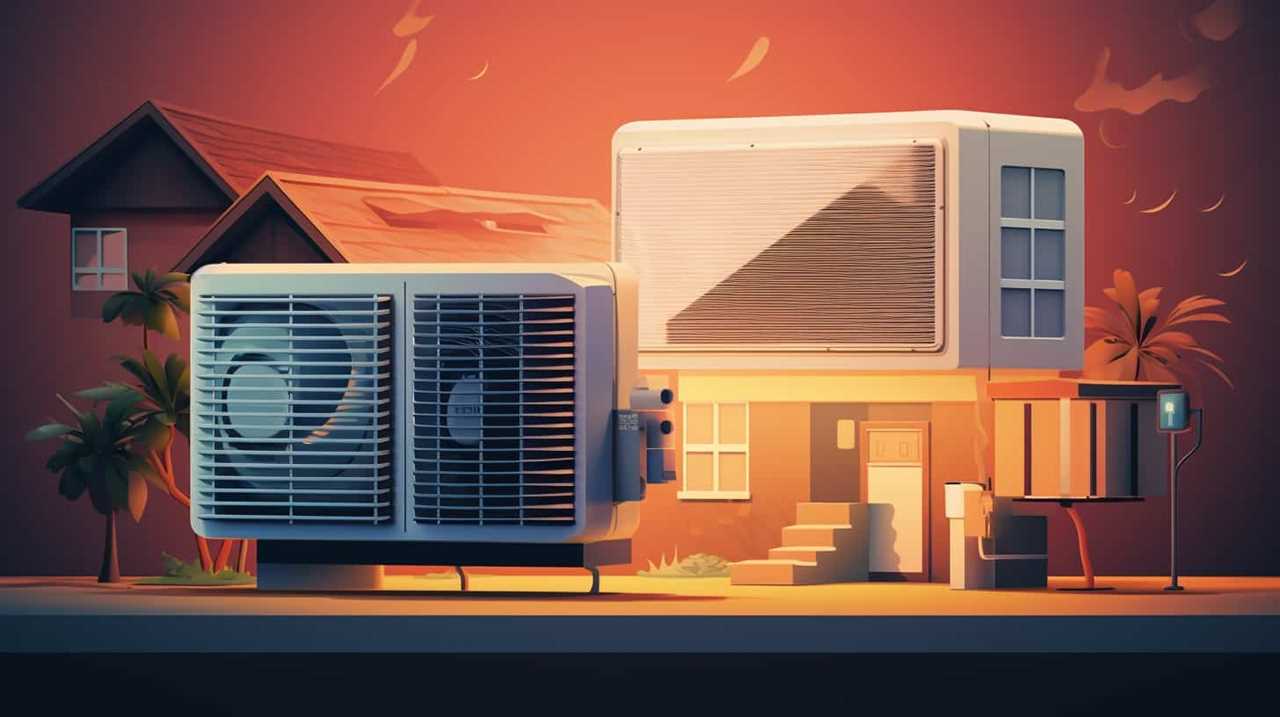
So let’s embrace these improvements and keep our homes cozy without breaking the bank.


